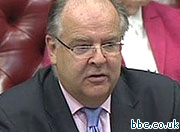Peers have passionately spoken out against a law to introduce assisted suicide, with one disabled Baroness describing the proposals as a “runaway train”.
Baroness Campbell of Surbiton, who uses a wheelchair and has spinal muscular atrophy, said: “My own experience of progressive deterioration has taught me that there is no situation that cannot be improved.”
Adding that the Bill “has become a runaway train”, and that it was “all the more frightening because of that”, she called on the Lords to “find ways to reflect further”.
Consider
Lady Campbell was one of dozens of Peers who criticised Lord Falconer’s Assisted Dying Bill. At the end of the debate Peers decided, without a vote, it should be sent to Committee stage, where it will be considered in more detail.
Ahead of the debate, leading critics of assisted suicide wrote to The Times saying in light of a recent judgment from the UK’s Supreme Court Peers should consider the Bill in committee instead of rejecting it after Friday’s debate.
The Bill is not likely to become law since it would require Government time in the House of Commons in the run-up to next year’s General Election.
Vulnerable
Simon Calvert, a spokesman for The Christian Institute, said: “We agree with those who say that assisted suicide would put pressure on the elderly, disabled and terminally ill.
“Crossing this line would be dangerous, not just for the most vulnerable, but for society as a whole.
“It would also drain the life out of efforts to find cures and improve palliative care.
“We are pleased to see the Prime Minister, like many others, has concerns about this issue.”

